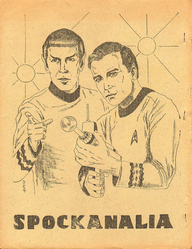|
by Scott MacLean  via Unsplash via Unsplash Can you name one gay superhero? I can’t. How about a wizard? Warrior? Villain? The sad fact of the matter is that I’ve read over two hundred young adult fantasy books and I know of only one that has a main character that’s gay. Now I know what you’ll say, media and literature is much more inclusive these days, which is true. According to a 2019 report done by GLAAD, the percentages of LGBTQ representation are at an all time high, and I’ll be the first to admit that it’s nice to have more options, especially in literature, but why hasn’t this translated to fantasy and other genres? I’m glad I can watch a show like Schitts Creek or read a book like The Gravity of Us by Phil Stamper, examples of quality LGBTQ stories that aren’t entirely centered on the fact that the characters are gay, but unfortunately, kids aren’t dressing up as Kurt Hummel from Glee on Halloween. They’re dressing up as Harry Potter, Daenerys Targaryen, or Harley Quinn, heroes from epic stories full of adventure.
0 Comments
 Via Pixabay Via Pixabay by Megan Kiger So, I’d call myself a liar. Used-to-be outstanding liar, but maybe just above average now. My intentions are never anything more than comedic (or dramatic) relief. We all love drama, and we all lie about that too. When I was little, I’d come up with intricate stories to cover my ass when I was in trouble or embarrassed (or just to make things interesting, you know?). I had a crush on a boy named Zach when I was ten. He had this ashy kind of blond hair and green eyes that I was obsessed with. I asked him if he wanted to swing with me at recess and he said no. He actually pretty rudely refused and laughed at me with his friends. I remember my throat swelling while I tried to keep the hysterics contained to my stomach. by Kaitlyn Gaffney
I am an unabashed fantasy nerd. I was raised on Harry Potter, YA vampire novels, Brandon Sanderson, and Dungeons & Dragons. I still play World of Warcraft and I world-build for fun, but my entire life, I have heard fantasy--and genre fiction in general--referred to as a “guilty pleasure.” With the explosion of YA and genre fiction in the past decade or so, the literary world has seen many arguments for the distinction between genre fiction and literary fiction and, in many cases, for literary fiction’s superiority. Arthur Krystal, in his piece “Easy Writers” for The New Yorker, promotes this hierarchy on the basis of genre fiction’s disproportionate focus on archetypal plot and inherent escapism. He describes genre fiction as “a narrative cocktail that helps us temporarily forget the narratives of our own humdrum lives.” I read this article a few months ago and felt the familiar sting of shame for my love of fantasy fiction.  image via amazingstoriesmag.com image via amazingstoriesmag.com By Mikaela Langdon Before the internet, fans of books, movies, and television shows had to keep their opinions and ideas about characters and storylines largely to themselves. At most, they might have shared them with friends or relatives. Now we’re in an age where people can share ideas at the push of a button. This has opened up the doors for something known as “fanfiction”: original stories with characters, settings, and sometimes other characteristics borrowed from popular culture. This concept originated, surprisingly, prior to the internet age in Star Trek fanzines such as Spockanalia (1967). This zine contained fanfiction written about the popular science-fiction show and was mailed to super-fans for their enjoyment. With the invention and advancement of the internet, fanfiction has practically become its own industry, allowing fans to become co-creators with the writers they so admire. These works are not intended for publication, at least not in their initial format, and give full credit to the original authors or creators. Fanfiction is not meant to overshadow the original content but rather to celebrate it. But what happens when a fanfiction author takes characters we all know and love and makes them her own, complete with a new backstory and personality? At what point does fanfiction go far enough from the source and just become regular fiction? by Elizabeth DiPietro Young Adult (YA) books often get a bad rap for being shallow, underdeveloped, and cliché. There are huge bestselling series that have transcended to films and television shows that fit that description to a T, which only adds to the idea that YA best sellers are cliché money grabs that uneducated teens are desperate to consume. On August 24, 2017, one author decided to test this limit by attempting to steal the #1 spot on The New York Times Best Seller list.
|
Archives
July 2024
Categories
All
|
|
Glassworks is a publication of Rowan University's Master of Arts in Writing 260 Victoria Street • Glassboro, New Jersey 08028 [email protected] |
All Content on this Site (c) 2024 Glassworks
|


 RSS Feed
RSS Feed
